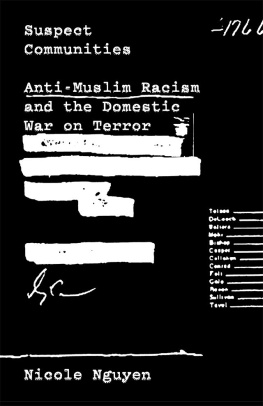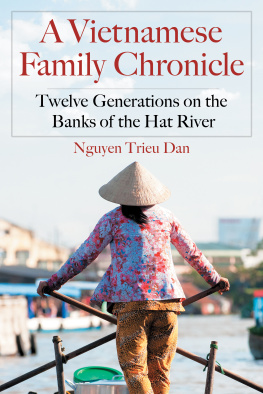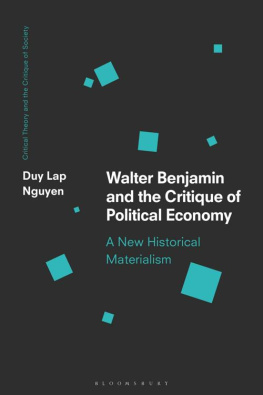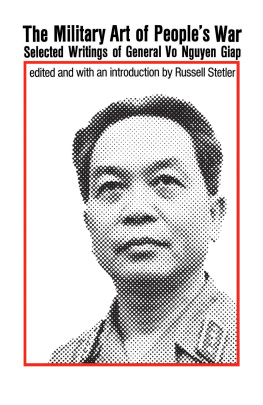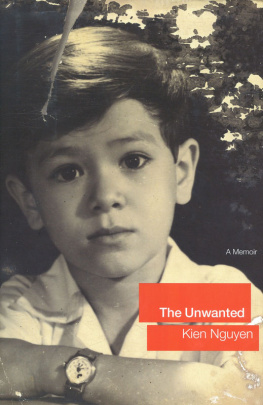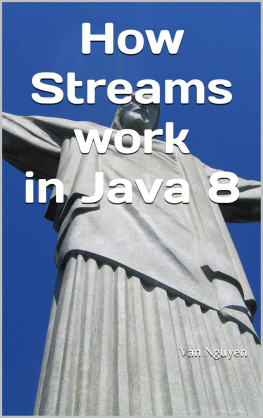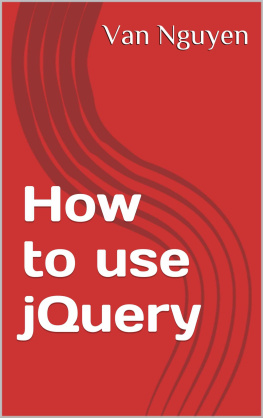Nicole Nguyen - Suspect Communities
Here you can read online Nicole Nguyen - Suspect Communities full text of the book (entire story) in english for free. Download pdf and epub, get meaning, cover and reviews about this ebook. year: 2019, publisher: University of Minnesota Press, genre: Politics. Description of the work, (preface) as well as reviews are available. Best literature library LitArk.com created for fans of good reading and offers a wide selection of genres:
Romance novel
Science fiction
Adventure
Detective
Science
History
Home and family
Prose
Art
Politics
Computer
Non-fiction
Religion
Business
Children
Humor
Choose a favorite category and find really read worthwhile books. Enjoy immersion in the world of imagination, feel the emotions of the characters or learn something new for yourself, make an fascinating discovery.
- Book:Suspect Communities
- Author:
- Publisher:University of Minnesota Press
- Genre:
- Year:2019
- Rating:5 / 5
- Favourites:Add to favourites
- Your mark:
- 100
- 1
- 2
- 3
- 4
- 5
Suspect Communities: summary, description and annotation
We offer to read an annotation, description, summary or preface (depends on what the author of the book "Suspect Communities" wrote himself). If you haven't found the necessary information about the book — write in the comments, we will try to find it.
Suspect Communities — read online for free the complete book (whole text) full work
Below is the text of the book, divided by pages. System saving the place of the last page read, allows you to conveniently read the book "Suspect Communities" online for free, without having to search again every time where you left off. Put a bookmark, and you can go to the page where you finished reading at any time.
Font size:
Interval:
Bookmark:
Nicole Nguyen

University of Minnesota Press | Minneapolis | London
Copyright 2019 by the Regents of the University of Minnesota
All rights reserved. No part of this publication may be reproduced, stored in a retrieval system, or transmitted, in any form or by any means, electronic, mechanical, photocopying, recording, or otherwise, without the prior written permission of the publisher.
Published by the University of Minnesota Press
111 Third Avenue South, Suite 290
Minneapolis, MN 55401-2520
http://www.upress.umn.edu
The University of Minnesota is an equal-opportunity educator and employer.
Library of Congress Cataloging-in-Publication Data
Names: Nguyen, Nicole, author.
Title: Suspect communities : anti-Muslim racism and the domestic war on terror / Nicole Nguyen.
Description: Minneapolis : University of Minnesota Press, [2019] | Includes bibliographical references and index. |
Identifiers: LCCN 2019013847 (ebook) | ISBN 978-1-4529-5916-0 (ebook)
Subjects: LCSH: TerrorismPreventionUnited States. | IslamophobiaUnited States. | Islamic fundamentalismUnited States. | MuslimsCivil rightsUnited States.
Classification: LCC HV6432 (ebook) | DDC 363.325/170973dc23
LC record available at https://lccn.loc.gov/2018061113
Like all projects, this book would not have been possible without the labor and love of so many people. I am humbled by all those who contributed to, supported, and sustained this work. Of course, any shortcomings remain my own, although I hope I have done some justice by those who gave their time, ideas, and love.
I am indebted to the national security policymakers, practitioners, and scholars who provided insight into their daily work. Though they cannot be named here, I learned so much from our time together and their perspectives continue to shape my thinking, in and through our discussions, disagreements, and deliberations. I am grateful for the time they gave, the debates they inspired, and the stories they shared about the possibilities and limitations of contemporary security regimes.
Although this project began as an exploration into the lifeworlds of national security workers, I quickly encountered thriving organizing communities working to end the criminalization of Muslim youth. I appreciated the opportunity to learn from and contribute to these efforts. The nuanced perspectives, critiques, and organizing of activists enhanced this books analysis and my researchs role in the movement to end targeted criminalization. I hope I did this work ethically and with humility.
Local coconspirators offered intellectual engagement and encouragement through the UIC Race and U.S. Empire Working Group, Teachers for Social Justice, Communities against Surveillance, and other incubators of critical praxis in Chicago. I especially thank Ivn Arenas, Andy Clarno, Rod Ferguson, Rico Gutstein, Kim Lawless, Patrisia Macas-Rojas, Nadine Naber, Akemi Nishida, Marlynne Nishimura, and Atef Said. Pauline Lipman and David Stovall offered support, clarity, and reprieve from the constant assault on critical scholarship that continues to define the neoliberal academy. Stacey Krueger contributed immensely to this research project by conducting interviews, providing sharp analyses, and pushing me to think and act more critically. Erik Love and Lisa Stampnitzky provided important critiques that strengthened my analyses. Sari Knopp Biklen taught me to think like an ethnographer and remains ever-present in my work.
I also thank my students whose scholarship has enhanced my own: L. Boyd Bellinger, Nico Darcangelo, Chris Emerling, Glenance Green, Cecily Relucio Hensler, Aja Reynolds, Hafsa Siddiqui, Jessica Suarez, Gia Super, and Asif Wilson. Each year, graduate students in my Criminalization of Youth in Urban Schools class deepen, challenge, and enliven my thinking. Thank you.
Further afield, community organizers and scholar-activists challenged me and held me accountable: Fatema Ahmad, Shannon Al-Wakeel, Mike German, Gerald Hankerson, Bri Hanny, August Hastings, Arifa Ibrahim, Zareen Kamal, Nesreen Hasan, Faiza Patel, Sangeetha Ravichandran, Muhammad Sankari, Debbie Southorn, Sue Udry, Yusuf Vidal, Lesley Williams, Mary Zerkel, and so many others from the #StopCVE coalition. News reporters Aaron Leibowitz and Alex Ruppenthal filed Freedom of Information Act requests and provided additional data vital to this project.
I wrote this book at the same time I began running and I owe a debt of gratitude to Chandni Desai, Alison Mountz, Jackie Orr, and all those who taught me how to find time for health, healing, and happiness within academic life. Many thanks to R. Tina Catania, Dan Cohen, Sol Gamsu, Alice Huff, Emily Kaufman, Amrit Kaur, Elizabeth Kubis, Yasmin Ortiga, Megan Scanlon, and Julia Snider, whose constant friendship helped sustain this work.
At the University of Minnesota Press, I thank editorial director Jason Weidemann, editorial assistant Gabriel Levin, assistant managing editor Mike Stoffel, and the many others who worked hard to finish this book. I also thank Doug Easton, who developed the index.
I am grateful for the administrative staff at University of IllinoisChicago, especially Alejandra Cantero, Karen Dop, Sharon Earthely, and Adrienne Gilg, whose invisible labor and hallway chats supported the development of this book.
And finally, many thanks to my parents, Eric, and Kristinand to Eleanor, who has brought so much joy to our lives.
In September 2015, ninth-grade student Ahmed Mohamed brought a homemade clock to his U.S. public high school. As a robotics enthusiast, Ahmed proudly showed his engineering teacher his latest invention, complete with a circuit board and digital display. Ahmeds English teacher, however, later confiscated the clock and reported him to school administration. The principal escorted Ahmed to his office, where five police officers questioned him for ninety minutes. Believing the clock was a hoax bomb, the police arrested Ahmed and transported him to a juvenile detention facility for fingerprinting and additional questioning (Selk 2015). Ahmeds story illustrates how anti-Muslim racism affixes the terrorist label to students perceived to be Muslim. Governing national security policies and discourses infused with anti-Muslim racism shaped how school staff responded to Ahmed as a potential terrorist.
Ahmeds experience fits into broader national security fears, anxieties, and practices that position youth as incipient terrorists. The U.S. Federal Bureau of Investigation (FBI) (2016d), for example, warns that high school students are ideal targets for recruitment by violent extremists seeking support for their radical ideologies, foreign fighter networks, or conducting acts of targeted violence within our borders (1). Given this framing of students, the FBI cautions that high schools must remain vigilant in educating their students about catalysts that drive violent extremism and the potential consequences of embracing extremist beliefs (1). Moreover, the FBI calls on teachers, guidance counselors, and other social service providers to observ[e] and assess[] concerning behaviors and communications indicative of students embracing extremist ideologies and progressing on a trajectory toward violence (3). Much like the growth of high school homeland security programs, the FBIs call places teachers on the frontlines of the global war on terror.
Just a few months before Ahmeds arrest, President Obama convened a global summit where he formally introduced a new countering violent extremism (CVE) initiative to facilitate community-oriented approaches to counter hateful extremist ideologies that radicalize, recruit, or incite to violence (Office of the Press Secretary 2015, para. 1). Increasingly concerned about homegrown terrorists, the Obama administration promoted CVE as a new national security strategy to deter young people from joining violent extremist groups like the Islamic State of Iraq and Syria (ISIS) without abrogating their constitutional rights. The Obama administration designed CVE with the understanding that communities are best placed to recognize and confront the threat and therefore should serve as critical partners in efforts to combat violent extremist ideologies and organizations that seek to weaken our society (White House 2011, 3). In this new national security model, community members act as key national security operatives tasked with countering terrorist propaganda as well as identifying, reporting, and working with individuals perceived to be at risk of or in the process of radicalizing.
Font size:
Interval:
Bookmark:
Similar books «Suspect Communities»
Look at similar books to Suspect Communities. We have selected literature similar in name and meaning in the hope of providing readers with more options to find new, interesting, not yet read works.
Discussion, reviews of the book Suspect Communities and just readers' own opinions. Leave your comments, write what you think about the work, its meaning or the main characters. Specify what exactly you liked and what you didn't like, and why you think so.

